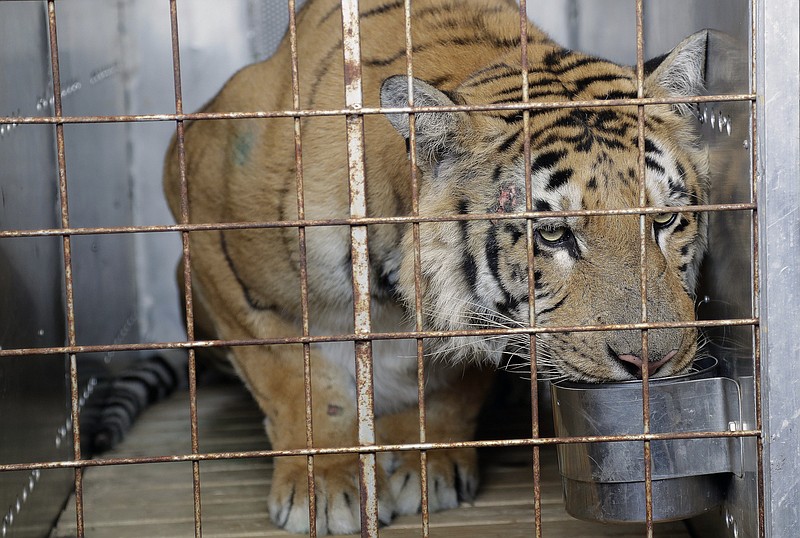JOHANNESBURG (AP) - A Bengal tiger rescued from what activists have called "the worst zoo in the world" arrived in South Africa for a new home Thursday, after living in a small cage in Gaza alongside another tiger's stuffed corpse.
The nine-year-old male, known as Laziz, arrived by plane. His handlers said he was in good condition and calm after traveling in a wooden crate.
The Four Paws charity launched a rescue effort at the Khan Younis zoo in Gaza when it discovered that the zoo was displaying the taxidermied corpses of animals that had died from stress, disease and starvation.
After the zoo asked for help, Four Paws on Wednesday removed 15 animals including five monkeys, a porcupine and an emu. Most were destined for an animal sanctuary in Jordan.
The tiger was being taken to the Lionsrock Big Cat Sanctuary in South Africa. He will roam in a 10,000-square-meter enclosure where he will be able to enjoy swimming and climbing, said Amir Khalil, who led the Gaza mission for Four Paws.
"Laziz is in good condition apart from a scratch on one side of his face, which comes from the crate," said Marina Strydom, a veterinarian at Lionsrock, said Thursday.
The facility already holds 90 big cats that have been rescued from around the world.
Conditions in Gaza, home to 1.8 million people, have steadily deteriorated since Hamas, an Islamic militant group, seized control of the territory in 2007 and prompted an Israeli and Egyptian blockade.
Years of conflict, cold winters, longstanding negligence and outbreaks of disease have killed many animals in captivity in Gaza.
